Whether these “new” health trends are making a comeback from thousands of years ago or fresh off the press, we determine which ones stand up to science.
When it comes to alternative and natural ways to promote health, not everything is backed by research. If you’ve seen some new trends popping up this year, you might be wondering if they really work – or if they’re even safe.
We’re breaking down the top ten popular wellness trends, and giving you the background on whether research supports them.
Want to go Paleo? Not sure where to start?
Start with this FREE Paleo For Beginners Guide Today!
How Do the Top Ten Wellness Trends Hold Up To Science?
Will all of these popular wellness trends for this year stand the test of time? Here’s what we think.
1. Moringa
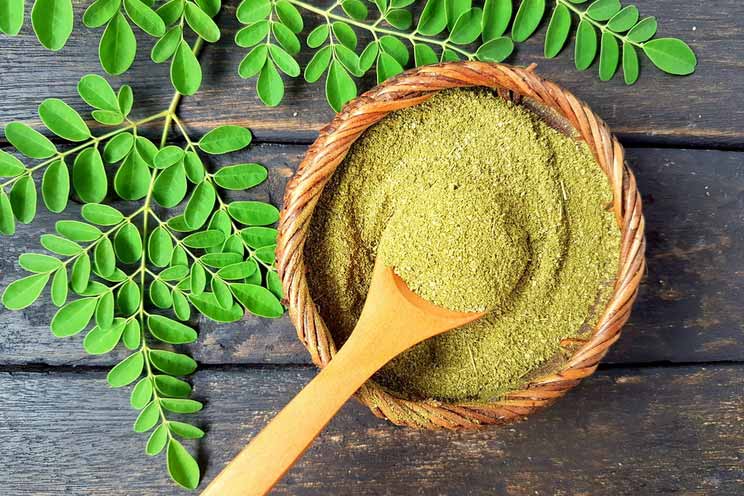
Short for Moringa oleifera, moringa is an edible tree native to India, Pakistan, Afghanistan, and the surrounding areas. While all parts of the tree can be eaten, the leaves are most commonly used to make medicinal supplements, teas, or juices.
Moringa is the real deal when it comes to health benefits. It’s a high source of antioxidants, which can fight oxidative stress in the body that leads to problems like type 2 diabetes, heart disease, and other chronic disorders. (1, 2, 3)
It also appears that moringa might be able to help lower blood sugar levels, although more research is needed before it becomes a go-to supplement for diabetes. There’s promise in both animal studies and small-scale human studies to help address high blood sugar levels. (4, 5)
Moringa also possesses anti-inflammatory benefits thanks to compounds in the seeds and leaves of the plant. While more studies are needed, initial research shows promise for being able to suppress inflammation in an overactive immune system. (6)
This herb can be taken in supplement capsules, added to smoothies as powder, or consumed as a tea.
Verdict: Promising
2. IV Nutrient Therapy
It seems logical that if you need more nutrients, you could fast-track the process by getting infusions via IV. However, there is very little research supporting this practice, and when you consider how nutrients are absorbed in the body – via the digestive system – IV infusion therapy of vitamins doesn’t necessarily make sense.
Proponents of IV nutrient therapy say that it bypasses the digestive system and goes straight to the bloodstream. However, critics warn that the body doesn’t know what to do with nutrients that bypass digestion and absorption in the traditional way.
Research shows that it isn’t necessarily harmful, but that the benefits of it are no better than placebo and it might just be a more expensive way to think that you’re getting healthier. (7) Average infusion costs range from $150 to $300. With no guarantee of what is actually in the IV bag – as well as no promise that they’d be absorbed and used by the body – there are less expensive and more effective ways to boost your nutrient intake.
Verdict: Debunked
3. Celery Juice

You might have noticed more images of celery juice when scrolling through your favorite health-related social media channels. But as we know, just because the Internet loves it, doesn’t mean it’s backed by research.
The problem with celery juice is that there is no high-quality research backing its benefits. When you consider the nutritional value of celery juice versus the whole vegetable, remember that juicing removes the fiber – an essential part of the food. Most Americans fall short on fiber requirements by about half, so it’s much better to add the whole celery stalk to your smoothie instead of juicing it. (8)
If you do want to juice, try beetroot instead. Research supports claims that it increases exercise stamina and brain health. (9, 10)
Verdict: Debunked
4. The Pegan Diet
The Pegan Diet is a non-restrictive food plan that loosely combines principles from both the Paleo and vegan diets.
It focuses on lots of fruits and vegetables, healthy plant-based fats like avocado oil and olive oil, and a moderate intake of fish, among other things. Pegan is another way to customize the Paleo diet for your own needs, much like keto-Paleo or the AIP diet.
Since no two people have the same dietary requirements, Pegan can certainly work better for some than others, just like Keto and AIP work best for certain individuals. It all comes down to your own health needs.
Verdict: Backed by research
5. CBD Oil

CBD, short for cannabidiol, is a non-psychoactive component of hemp/marijuana. It is now legal in all 50 states to use CBD (with different levels of restriction) and is widely used for various health needs like chronic pain, headaches, anxiety, and more. (11) Many companies are produce food and drink products with CBD in them, and this market is expected to grow rapidly.
However, CBD isn’t good for everything. Unless you’ve checked with your doctor, you shouldn’t assume that it’s safe. There are a few key health areas where it’s contraindicated because research doesn’t exist to prove that it’s safe. Animal studies show that CBD oil might harm male fertility, for example. (12) It’s also not safe to take CBD products if you’re already taking blood thinners or other medications because it can change the way they work within your body. (13)
While it’s great to think that CBD could be a game-changer when it comes to many health issues, it’s simply still too new and unresearched to assume much beyond its science-backed benefits for epilepsy.
Verdict: Promising, but needs more research.
6. Ayurveda
Ayurveda originated in India about 5,000 years ago, and translates to “knowledge of life”. It’s not a single method of living, but a healing and lifestyle approach that includes the awareness of how the mind and body are connected.
Ayurveda includes many foods that are research-backed to fight inflammation, like turmeric and ashwagandha. (14) Limited research of a one-week panchakarma cleanse shows positive results for decreasing inflammation. However, researchers believe the benefit is most likely due to the vegetarian diet and not necessarily from the other aspects of Ayurveda. (15)
Before you sink hundreds or thousands of dollars into Ayurvedic supplements, consider that research found a number of these products contain high levels of heavy metals. (16)
Certainly, Ayurvedic principles can be beneficial, but as with most things, it requires balance, moderation, and a personalized medical recommendation to ensure it’s right for you.
Verdict: Promising, but needs more research
7. Elderberry Syrup
Long before it was used to flavor your favorite cocktails, elderberry syrup was used to address viral infections like the flu.
It’s true: Science shows that elderberry syrup can shorten the duration of the flu, as well as to lessen the severity of symptoms. (17) It’s important to know, however, that raw elderberries do not contain the same benefits and could actually be harmful since they can produce cyanide. It’s best to buy elderberry syrup like other supplements from a trusted and legitimate source.
Verdict: Promising, but needs more research and may not be right for some people.
8. Digital Detoxes

Digital detoxes are gaining popularity, and for good reason. We’re creatures of habit, and it’s difficult to create more space or margin when we rely heavily on smartphones, tablets, and computers.
Ironically, even technology itself is catching on to the idea. For example, iPhones can now track your screen time to tell you what apps you’re using the most and for how long. These tracking apps can help to limit use and keep you accountable. Entire programs are built around unplugging phones one day a week, or even doing more intensive digital detoxes like unplugging for a weekend or longer. (19)
Unplugging can never be a bad thing, and is something we can all benefit from practicing regularly.
Verdict: Promising
9. Plant-Based Fish
Most plant-based fish products are made from ingredients like potato starch, pea protein, beans, algae, and the like. Ingredients in a product known as “Vegan Toona” include pea protein, potato starch, seaweed powder, apple cider vinegar, and agave. While agave isn’t the worst sweetener, it is high in fructose and might be problematic for people with blood sugar problems. (20)
While these products might be convenient for people who don’t choose to eat seafood or who have fish or shellfish allergies, in general, we’re a little iffy on their health benefits. As far as being replacement options for occasional use, they’re probably okay. But from a standpoint of replacing healthy fish like salmon, sardines, or mackerel? They don’t stand up to it.
Verdict: Potentially problematic
10. Plant-Based Burgers
While we’re talking about plant-based animal products, plant-based burgers are the next trend in the health food market. These products claim to taste the same as meat but are free from animal products.
Plant-based burgers might sound like a good idea, but they contain wheat, soy, and other grains to mimic the texture and flavor of meat. While it’s great that they help reduce environmental impact and emissions, the challenge for the beef industry is to find more sustainable practices for raising livestock – not to substitute beef products with similar tasting foods that have none of the health benefits. (21)
It’s also key to note that grass-fed beef contains nourishing healthy fats and protein. Plant-based burgers are low in complete protein and amino acid profiles and do not contain anti-inflammatory omega-3 fatty acids. On top of that, the grains used in plant-based meat have the potential to cause gut issues down the line.
Verdict: Potentially problematic
(Read This Next: The 10 Best Snacks to Curb Cravings, According to Health and Wellness Leaders)


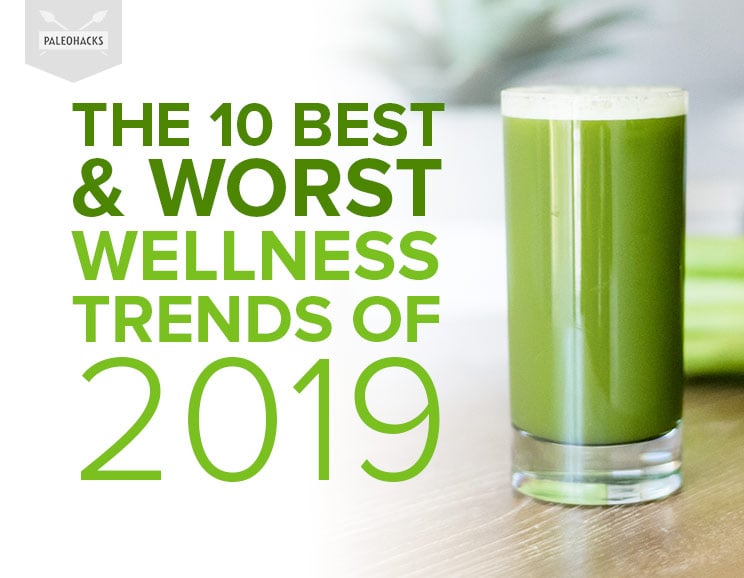
 Garlic Roasted Artichokes
Garlic Roasted Artichokes

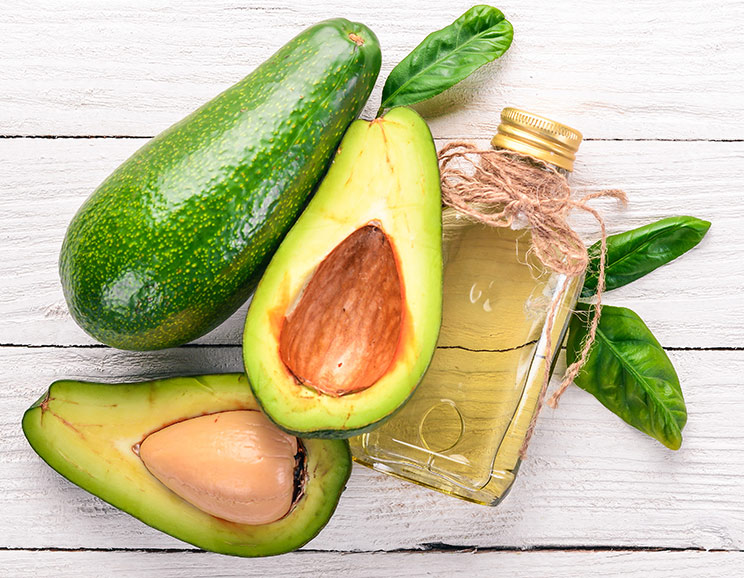

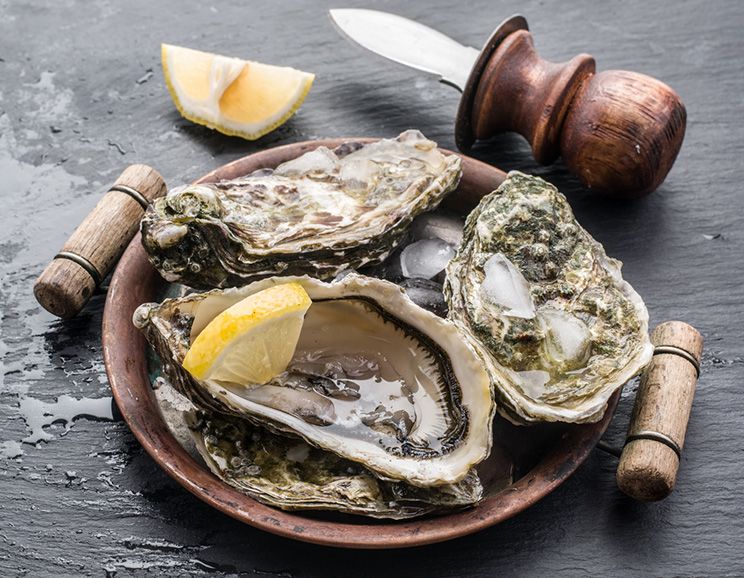

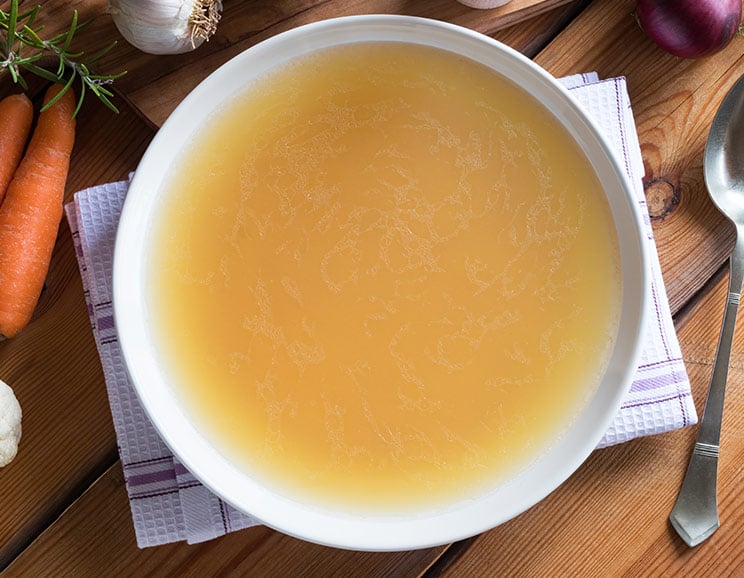

Show Comments